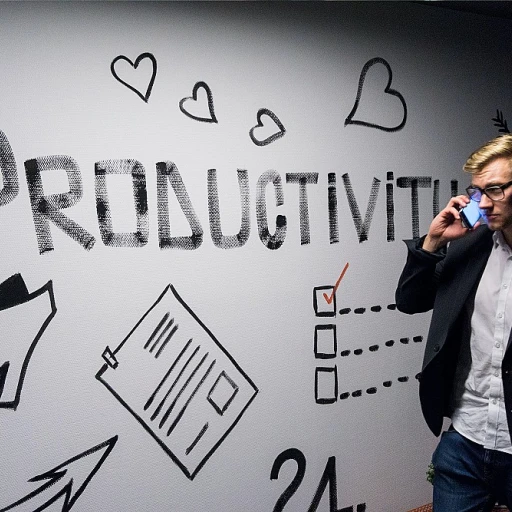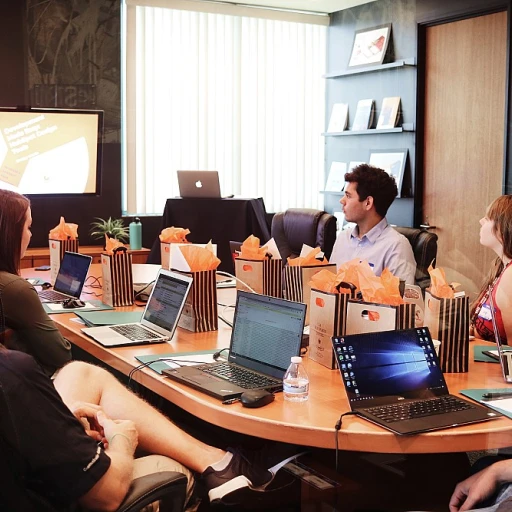Understanding the Unique Challenges in Collections
Recognizing the Specific Hurdles in the Collection Industry
The collection industry faces unique challenges that can impact employee retention and job satisfaction. Understanding these hurdles is the first step in crafting effective retention strategies that ensure a supportive work environment. In this high-pressure field, the stress and emotional exhaustion associated with handling difficult accounts often contribute to high turnover rates. Consequently, establishing a company culture that prioritizes mental well-being and stress management is crucial.
Moreover, collections employees frequently encounter an unpredictable workload and demanding interactions with clients, which can negatively affect their work life balance. Hence, organizations should consider implementing flexible work arrangements, where feasible, to empower employees and enhance job satisfaction.
Ensuring that team members feel valued and supported is also critical in employee retention. Providing them with the necessary resources and feedback goes a long way in fostering an environment where they can thrive professionally. Furthermore, professional development opportunities can support long term growth, encouraging employees to stay and develop within the company.
By acknowledging these industry-specific factors, companies can tailor their retention strategy to address the unique needs of their employees, ultimately fostering a positive work culture and reducing turnover rates.
Creating a Supportive Work Environment
Building a Foundation for Success Through Workplace Culture
A supportive work environment is pivotal to employee retention in collections. Creating a nurturing atmosphere where employees feel valued and understood can substantially reduce turnover rates while fostering job satisfaction.
To achieve this, organizations should prioritize an open culture where team members can freely express their ideas and concerns. Regular feedback sessions and open communication channels enable employees to voice their needs, enhancing engagement and building trust. Emphasizing a participative environment allows everyone to contribute to the company's goals.
Additionally, designing a workspace that caters to both in-person and remote work scenarios can contribute to a balanced work life for employees. Flexibility in the work environment ensures that employees stay motivated and productive, irrespective of where they are physically located.
Investing in a strong company culture where employees feel connected and driven by the organization's mission is a long term strategy. These efforts not only lead to better retention but also contribute to a more cohesive and thriving team. Creating such an environment is a critical component of engagement retention strategies.
For further insights, consider exploring how employee experience directly impacts employee engagement, shedding light on how positive workplace culture plays a crucial role in fostering commitment and reducing turnover.
Implementing Flexible Work Arrangements
Embracing Flexibility in the Workplace
As organizations strive to enhance employee retention and engagement, implementing flexible work arrangements has emerged as a pivotal strategy. In the collections industry, where stress levels can be high, offering flexibility in work schedules can significantly improve job satisfaction and reduce turnover rates. This approach not only helps employees achieve a better work-life balance but also aligns with the evolving expectations of the modern workforce.
Flexible work options can take various forms, including remote work, flexible hours, or compressed workweeks. These arrangements allow employees to tailor their work schedules to fit their personal needs, leading to a more positive work environment. When employees feel they have control over their time, they are more likely to feel valued and committed to their roles.
Moreover, a flexible work environment can foster a strong company culture where employees feel supported and trusted. This culture of trust and autonomy can enhance employee engagement and encourage employees to stay with the company long term. By integrating flexibility into the workplace, companies can create a supportive environment that promotes both professional development and personal well-being.
To successfully implement flexible work arrangements, it is essential to maintain clear communication and set expectations. Regular feedback sessions can help ensure that both employees and management are aligned in their goals and expectations, further strengthening the workplace culture.
Incorporating flexibility as part of your retention strategy not only addresses the unique challenges in collections but also contributes to a more engaged and satisfied workforce. For more insights on creating a supportive work environment, explore our article on how employee experience directly impacts employee engagement.
Offering Competitive Compensation and Benefits
Competitive Salaries as a Pillar of Retention
Ensuring that your team in collections is offered competitive compensation is crucial for employee retention and job satisfaction. When employees feel their hard work is rewarded appropriately, it positively impacts the broader company culture. Competitive pay serves not only as a financial incentive but also as a means of recognition, reinforcing that their contributions are valued by the organization.Comprehensive Benefits that Enhance Well-being
To retain top talent and create a positive work environment, it's important for organizations to extend benefits that support workplace culture and employee health. These benefits might include health insurance, retirement plans, and wellness programs, each contributing to the employees’ overall work life balance. By fostering an environment where employees feel supported outside of their daily tasks, you cultivate engagement and reduce turnover rates.Tailored Benefits for Employee Needs
In today’s dynamic work landscape, offering tailored benefits can significantly influence employee retention strategies. This means not just meeting industry standards, but genuinely understanding what your team values at a personal level. Engaging with employees through feedback surveys and one-on-one meetings creates opportunities for the organization to adapt benefit packages to better fit the unique needs of its employees, reinforcing a culture of care.Bonus and Incentive Programs
Incentive programs, whether through performance-based bonuses or other forms of recognition, are effective in boosting team morale and motivation. These programs should align with clear goals to ensure every team member understands how their efforts contribute to the organization’s success. Such strategies actively contribute to a reduction in turnover by consistently encouraging high levels of engagement and recognition. By meticulously addressing compensation and benefits, companies can enhance employee engagement and foster a robust culture where employees feel motivated and committed to their roles in the long term.Providing Career Development Opportunities
Fostering Professional Growth and Longevity
Employee retention strategies shine when organizations prioritize professional development. In the collections sector, where employees often face unique challenges, creating pathways for growth helps in cementing long-term commitment and job satisfaction. Providing consistent career development opportunities is pivotal for a positive work environment. When employees feel there is room for upward mobility and skill enhancement, they are more likely to commit to their roles within the company. A structured approach to development displays an organization's investment in its talent, fostering a culture of mutual respect and trust. To implement effective development programs, organizations can:- Offer regular training sessions: These should be designed to enhance both technical skills specific to collections and soft skills that improve overall communication and problem-solving abilities.
- Support education initiatives: Assistance with further education or certifications related to the industry can incentivize employees to further their careers within the company.
- Implement mentorship programs: Pairing employees with experienced mentors can accelerate professional growth and nurture a supportive work culture.
- Create a clear career path: By clarifying how employees can progress within the company, organizations not only boost engagement but also significantly reduce turnover rates.
Enhancing Employee Engagement and Recognition
Fostering Employee Involvement for Stronger Connections
To enhance employee engagement and retention in the collections environment, it’s crucial to make employees feel valued and appreciated as integral members of the team. A positive work culture where feedback is actively encouraged can significantly impact job satisfaction and long-term employee retention.
Encouraging open and honest communication within your organization helps employees express their concerns and ideas, fostering an environment where they feel their contributions are important. Regular feedback loops and discussion sessions not only empower employees but also provide valuable insights to the company for further development.
Acknowledging the employees’ achievements and providing recognition for their hard work plays a huge role in promoting a culture of respect and trust. Recognizing milestones and achievements, both big and small, can make employees feel more connected to the organization’s goals and values, reducing turnover rates.
Moreover, creating opportunities for team-building activities can strengthen the bonds within the team and build a sense of community that encourages employees to stay and thrive. A culture that celebrates collective accomplishments and promotes work-life balance will contribute to lowering the turnover rates, ensuring employees feel a part of something larger than themselves.
By integrating measures that improve the overall employee experience, such as providing meaningful professional development opportunities and fostering a collaborative work environment, organizations can significantly enhance employee engagement retention. As a result, employees are more likely to remain loyal to their workplace and contribute positively to the organization’s objectives.













